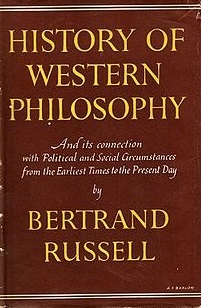
Bertrand Russell (1872–1970) was not just one of the 20th century's most eminent philosophers but also a tireless advocate for reason, logic, and the pursuit of knowledge. His contributions to philosophy, particularly in the realms of logic, epistemology, and the philosophy of language, have left an indelible mark on intellectual thought.
Russell’s early work in mathematical logic, notably through his groundbreaking collaboration with Alfred North Whitehead in Principia Mathematica (1910–1913), laid the foundations for much of modern analytic philosophy. His insights into logic challenged traditional assumptions about the structure of language and the relationship between language and the world. His work also extended to exploring the limitations and scope of human knowledge, making him a key figure in the development of epistemology, where he probed the nature of certainty, belief, and empirical knowledge.

Equally important was Russell’s commitment to the practical implications of philosophy. A passionate pacifist, political theorist, and social critic, he was deeply involved in political movements, often confronting the ethical dimensions of war, nuclear weapons, and social injustice. His philosophy was never abstract or detached from the real world—Russell viewed philosophy as a tool to foster clarity of thought, leading individuals and societies toward a more rational and just existence.
Russell's legacy endures in his call for critical thinking, skepticism, and a balanced approach to life, encouraging individuals to challenge assumptions, question authority, and pursue a deeper understanding of both the natural and human worlds. His writings continue to inspire philosophers, social activists, and anyone interested in cultivating a thoughtful and reflective life.

In his monumental The History of Western Philosophy (1945), Bertrand Russell offers a sweeping narrative that covers the entire spectrum of Western philosophical thought from the Pre-Socratics to the early 20th century. Known for its breadth and readability, the work has long been regarded as one of the most accessible introductions to philosophy’s evolution.
Russell’s approach is not only historical but also evaluative, as he deftly critiques the thinkers he covers. In this comprehensive volume, he navigates through the ancient Greek philosophers, including the likes of Plato and Aristotle, whose ideas formed the bedrock of Western thought. He continues to trace the development through the medieval period, where he highlights the tension between faith and reason, focusing on figures such as Augustine and Aquinas.
The Renaissance and Enlightenment sections are marked by Russell’s analysis of the rise of humanism, science, and the questioning of religious orthodoxy, where thinkers like Descartes, Spinoza, and Locke come under his scrutiny. Russell is at his sharpest when discussing the towering figures of modern philosophy, from the rationalism of Leibniz to the empiricism of Hume, and the revolutionary idealism of Kant.
However, it is the 19th and 20th centuries where Russell’s expertise shines the brightest, especially in his treatment of British empiricists, German idealists, and the emergence of logical positivism. Russell himself is a central figure in this era, making the narrative both personal and philosophical. He offers reflections on his own role in shaping modern philosophy, contributing to the analytic tradition that would dominate much of academic philosophy for years.
![]()
Russell's historical narrative is more than just a catalog of ideas; it’s a subtle critique of Western intellectual traditions, drawing connections between philosophy and politics, ethics, and culture. His sharp wit and dry humor punctuate his assessments of various philosophers’ strengths and follies, making the book not only informative but also deeply engaging.
The History of Western Philosophy remains a cornerstone for anyone wishing to understand the evolution of Western thought—while also serving as a testament to Russell's own remarkable ability to synthesize complex ideas and present them in a clear, compelling manner. His work is more than just an academic text; it’s a celebration of human intellectual achievement, a plea for reason, and a reminder of the ongoing quest for wisdom.
Russell’s approach is not only historical but also evaluative, as he deftly critiques the thinkers he covers. In this comprehensive volume, he navigates through the ancient Greek philosophers, including the likes of Plato and Aristotle, whose ideas formed the bedrock of Western thought. He continues to trace the development through the medieval period, where he highlights the tension between faith and reason, focusing on figures such as Augustine and Aquinas.
The Renaissance and Enlightenment sections are marked by Russell’s analysis of the rise of humanism, science, and the questioning of religious orthodoxy, where thinkers like Descartes, Spinoza, and Locke come under his scrutiny. Russell is at his sharpest when discussing the towering figures of modern philosophy, from the rationalism of Leibniz to the empiricism of Hume, and the revolutionary idealism of Kant.
However, it is the 19th and 20th centuries where Russell’s expertise shines the brightest, especially in his treatment of British empiricists, German idealists, and the emergence of logical positivism. Russell himself is a central figure in this era, making the narrative both personal and philosophical. He offers reflections on his own role in shaping modern philosophy, contributing to the analytic tradition that would dominate much of academic philosophy for years.

Russell's historical narrative is more than just a catalog of ideas; it’s a subtle critique of Western intellectual traditions, drawing connections between philosophy and politics, ethics, and culture. His sharp wit and dry humor punctuate his assessments of various philosophers’ strengths and follies, making the book not only informative but also deeply engaging.
The History of Western Philosophy remains a cornerstone for anyone wishing to understand the evolution of Western thought—while also serving as a testament to Russell's own remarkable ability to synthesize complex ideas and present them in a clear, compelling manner. His work is more than just an academic text; it’s a celebration of human intellectual achievement, a plea for reason, and a reminder of the ongoing quest for wisdom.


